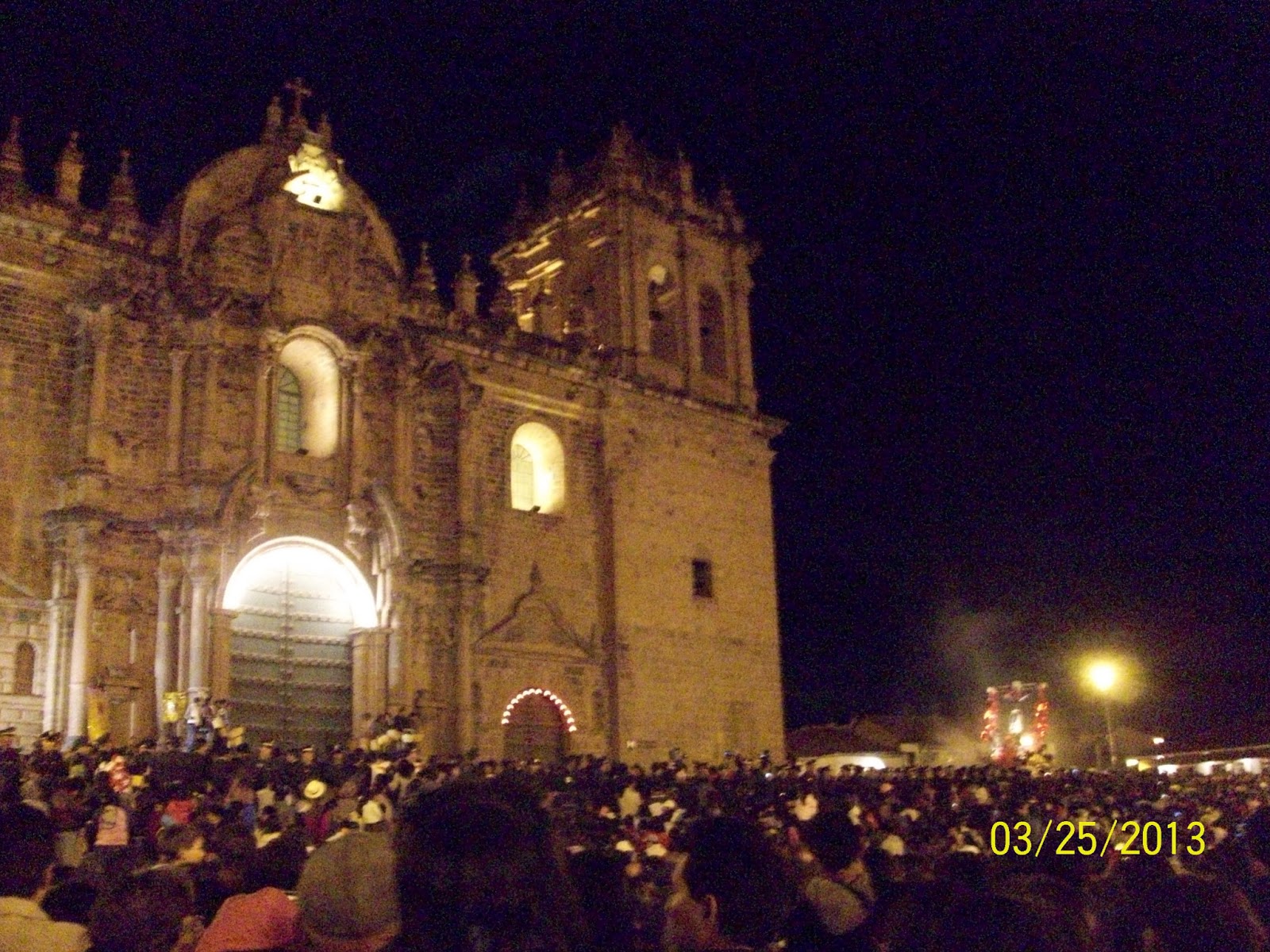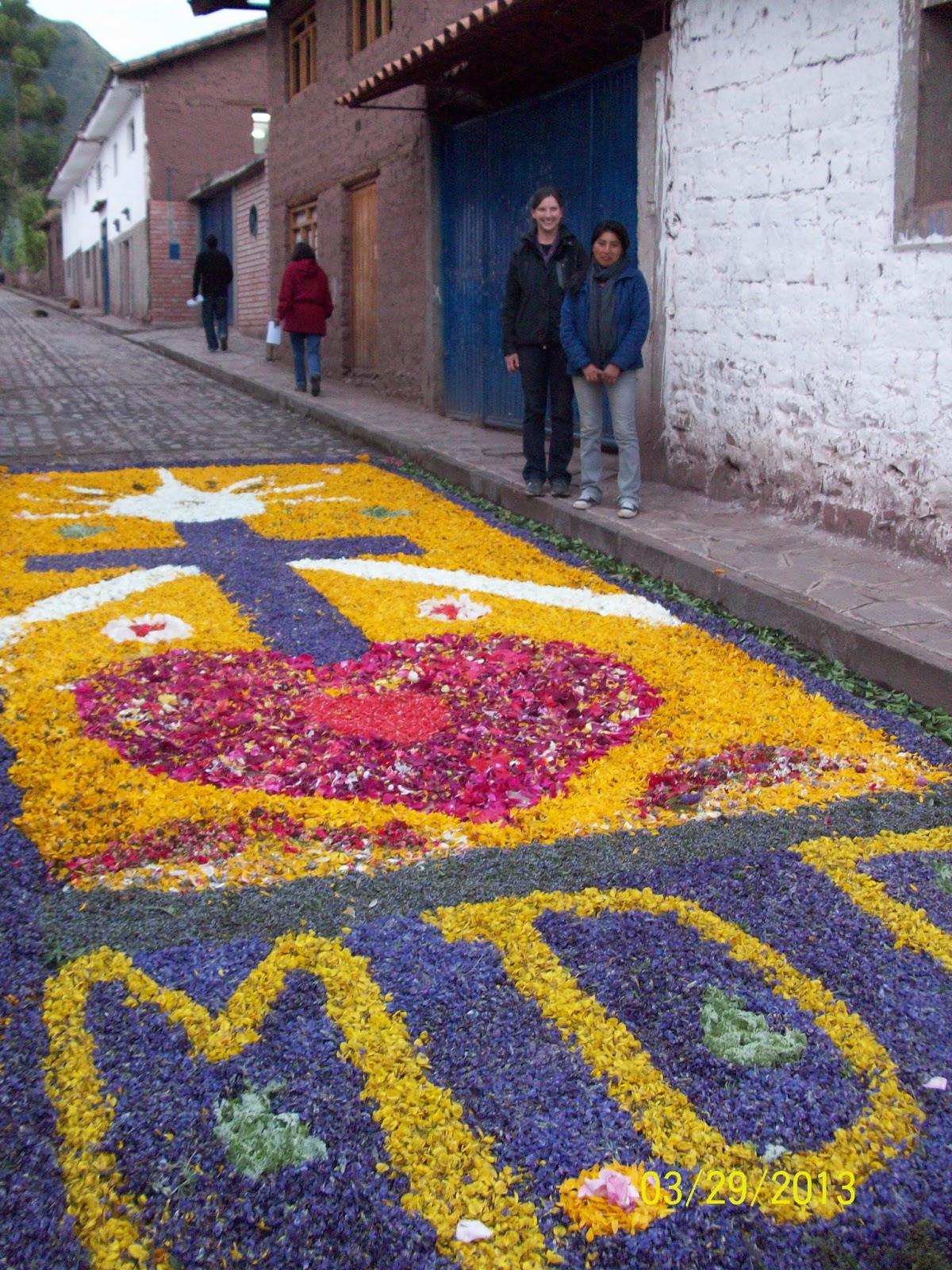 The scrape of wooden chairs on wooden floors,
stacked and crumpled papers on evenly paired wooden desks, the chime of a metal
bell, the presence of red and white-dressed students, it´s the beginning of the
school year and I cannot kick the Schoolhouse Rock songs that keep repeating in
my head…
The scrape of wooden chairs on wooden floors,
stacked and crumpled papers on evenly paired wooden desks, the chime of a metal
bell, the presence of red and white-dressed students, it´s the beginning of the
school year and I cannot kick the Schoolhouse Rock songs that keep repeating in
my head…
As I walked in the first day, I accepted that
the moment I was most nervous about in my service journey had arrived; I was
about to teach. So, to calm my nerves, I prayed St. Teresa of Avila´s prayer quietly
“Nada te turbe, nada te espante, todo se pasa, Dios no se muda, la paciencia
todo lo alcanza, quien a Dios tiene nada le falta, solo Dios basta” and filled
my mind with the sweet tunes of “conjunction, junction, what´s your function?”
Five weeks have passed since that moment of
fear and doubt. Though I no longer fear teaching, my experience thus far has
confirmed that teaching is hard. I
have such a newfound respect for teachers: for my friends back at the US
teaching their first year after graduation, for the teachers who taught me and
the teachers who didn´t and ultimately, for my mother.
So, to repeat, with no sugar
coating, teaching has been hard. Despite the mayhem that occasionally ensues
inside the 30-some student filled classrooms, I find peace in growing with and
getting to know my students. As they grow and learn this year, I will be
growing and learning with them. I anticipate that this year will be difficult
and challenging, but, also, beautiful. One of my goals is to focus on the
present process—despite the craziness—and see the value in the journey rather
than merely working towards an end goal. In this way, my time teaching will be
more fulfilling and more sustainable.
 So far, interacting with my students
has helped me be more present here. They have taught me many things one of
which is that there is a Telenovela (Soap Opera) from Mexico with a woman named
Teresa …this may be why some of them think I
am from Mexico.
So far, interacting with my students
has helped me be more present here. They have taught me many things one of
which is that there is a Telenovela (Soap Opera) from Mexico with a woman named
Teresa …this may be why some of them think I
am from Mexico.
They have shown me grace in moments when I feel like I am
about to fall apart—just this past week, after a rough class, my student,
Eduardo, wished me a good weekend and gave me a hug. In short, they have made
me laugh (a lot) and, even, cry (only a few times), but mostly they help me to
be ever mindful of God.
I keep thinking of a poem by one of my favorite poets, Hafiz. It reads:
Buttering the Sky
I keep thinking of a poem by one of my favorite poets, Hafiz. It reads:
Buttering the Sky
Slipping
On my shoes,
Boiling water,
Toasting bread,
Buttering the sky:
That should be enough contact
With God in one day
To make anyone
Crazy.
I love St. Ignatius´ theology of
seeing God in all things, in every moment. Hafiz and St. Ignatius may not be
come from the same faith practice, but both seem to greet the world and the
simple moments of every day in a similar fashion--that they are an expression
of the Divine. The world is a canvas that the Sacred has painted and the small
steps which wholly comprise of our day, every menial task, breathe this same
spirit and life. My students help me to be aware of when God is present in
buttering the sky.
So, with these reminders, I felt even more engaged as
Holy Week began. Palm Sunday began in the morning with a procession from a chapel at the pista (the road to Cusco) to the church and a Mass that followed.
Another procession filled Monday´s evening. This one took place in Cusco and celebrated Cusco´s patron, Senor de los Temblores (Christ of the Earthquake). Thousands of people fill the Plaza de Armas and wait for the end of the Cusco-wide procession of the statue of Christ (which only leaves the Cathedral on Monday of Holy Week every year). The most powerful part of that experience was, when receiving the blessing, everyone (thousands of people) kneeled on the cobblestone ground.
Thursday’s Mass included washing of the hands and feet and adoration and we rested early for our Friday morning´s adventure. Friday morning, we woke up at 4am to collect flowers from the mountains just outside of Andahuaylillas with the youth group kids. It was, in a lot of ways, a magical morning, waking up with the sun in the Andes. These flowers were then used to create designs on the streets and in the church for Friday evening’s Mass and town-wide Stations of the Cross. We spent our midmorning and afternoon preparing food with our friend Lili and her family for a tradition called “los doce platos” which means “the 12 plates.” These include 6 savory and 6 sweet dished to celebrate Easter weekend and break the morning fast.
 |
| morning view towards Cusco |
 |
| Flowers in their natural state... |
 |
| Flowers and grass as the alfombras (rugs) |

 |
| Some of the VERY impressive decorations |
 |
| Design of the front of temple |
Sunday morning, we rose from our beds at 3:30am for the 4am Mass. We began outside with candle light and returned inside for a 2-3 hour service. When we exited, the sun greeted us, reminding us with its renewal of the day of the personal rebirth and rejuvenation which brings the Easter season.
To finish Holy Week, we processed back to the chapel on the pista. There we ate soup, danced in a big circle, drank (it’s 5 o’clock somewhere, right?) and danced our way back to and in the plaza in pairs. This all took place before 11am and after waking up at 11am on Sunday mornings in college, I felt that we had had a VERY productive morning. We ended the day at the sisters’ house where we danced some more, prayed, and enjoyed each other’s company with revitalized spirits.
During Holy Week, the theme of community impacted me most. Every Mass, procession, time of prayer and activity were celebrated together. In the moments of prayer, the community joined to pray together; in sadness, (like Good Friday) the community walked with each other in their grief; in joy, the community ate and danced together. We began and ended the week together. We carried each other through the week until all were dancing at the end.
So, in light of this theme of community, I thought I would end this blog with a photo of our current volunteer community:
 | ||
| Back: Brian, Maria, Sarah; Front: Susan and yours truly |
Peace from Andahauylillas.







